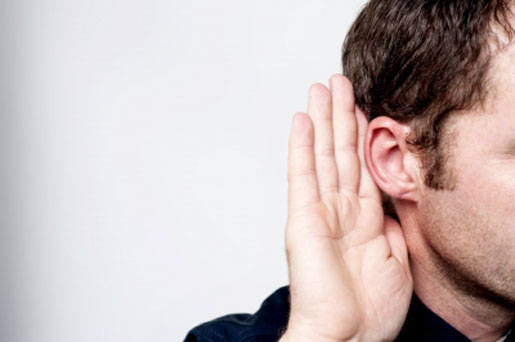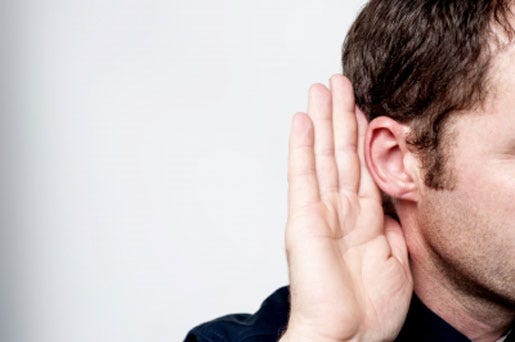Senators introduce legislation that would allow patients to buy some types of hearing aids over the counter, amplifying the debate over access and best care.
December 6, 2016


U.S. Senators Elizabeth Warren (D-MA) and Chuck Grassley (R-IA) recently introduced bipartisan legislation to make some kinds of hearing aids available over the counter. The legislation is the latest chapter in an argument over how to provide the best care for patients with hearing loss.
Earlier this year, hundreds of commenters told FDA how they felt about the possibility of certain hearing aids being made available over the counter. At the time, MD+DI reported that many of the commenters opposed easier access to hearing aids because the importance of the audiologist's role in diagnosing and treating hearing loss was not acknowledged or included in the process and many held the view that personal sound amplification products (PSAPs) don't have the same features or precautions for users.
FDA had reopened its comment period on 2013 draft guidance regarding PSAPs after a September 2015 report from the President's Council of Advisors on Science and Technology (PCAST) recommended the agency create a new category of hearing aids and tests for over-the-counter availability. PCAST had also recommended that FDA repeals its 2013 PSAPs draft guidance to allow labeling for age-related mild-to-moderate hearing loss.
In addition, the Institute of Medicine, now known as the National Academy of Sciences, Engineering, and Medicine (NAS), released a report in June 2016 that included a recommendation that FDA create a category for over-the-counter hearing devices.
Earlier this month, Warren and Grassley introduced the "Over-the-Counter Hearing Aid Act of 2016." The bill is intended to make it easier and less expensive for people with hearing loss to acquire and use assistive hearing technology, according to a release from Warren's office. The release notes that although approximately 30 million people in the United States have hearing loss related to aging, just 14% use assistive technology.
Cost is a factor, as a 2014 report conducted by the Consumer Electronics Association (CEA) that found that the percentage of people who were willing to spend $1000 or more on hearing health care or devices was just 10% in those with "a lot or some hearing difficulty" and 32% in those "diagnosed with hearing loss." Hearing aids typically sell for $1000 or more while PSAPs are priced in the low-to-mid hundreds of dollars. CEA is now known at the Consumer Technology Assocation (CTA) and supports broader adoption of PSAPs.
"Millions of people in Massachusetts and across the country experience hearing loss as they get older, but they are unable to get the hearing aids they need because of high costs and complicated regulations," Warren said in the release. "This bipartisan bill is a simple fix that will make hearing aids easier to access and--unlike in the current marketplace--will make it easier for consumers to shop for the best value."
The legislation would allow patients to buy hearing aids for mild-to-moderate hearing loss over the counter, without a medical evaluation or signed waiver. The bill also asks FDA to set out safety and labeling for these over-the-counter hearing aids and to update its 2013 PSAPs draft guidance, according to a fact sheet on the legislation.
Perhaps in anticipation of concerns about the expertise needed to properly diagnose and treat hearing loss, Senator Grassley said in the release announcing the bill, "This won't affect those who need professional expertise to be fitted for hearing aids or have hearing aids implanted. The over-the-counter option is for those who would benefit from a simpler device."
The news release noted that the legislation is backed by the CTA, the Hearing Loss Association of America (HLAA), the American Association of Retired Persons (AARP), Bose, and the Gerontological Society of America.
In a statement, Gary Shapiro, CEO and president of the CTA, said, "Getting PSAPs on the same shelf as over-the-counter eyeglasses would be a major win for consumers and businesses. The high cost of hearing aids, the inconvenience and the cost of doctor appointments mean most adults with mild hearing loss don't get the hearing assistance they need. Sens. Warren and Grassley's bill is a great step forward to show how technology can drastically improve the quality of life for those with hearing loss."
Yet not everyone supports the bill. Groups including the American Academy of Audiology and the International Hearing Society oppose making hearing aids available over the counter.
In a statement, the American Academy of Audiology explained its concerns. "This legislation addresses only access to the device, yet access to hearing health care and treatment for hearing loss extends far beyond the device itself. Audiologic care includes assessment and diagnosis of hearing loss, determination of the etiology of the loss and the inpact on communicative function, and the development of a comprehensive treatment plan that may or may not include an amplification device."
Ian Windmill, PhD, president of the American Academy of Audiology, said in a statement, "Though seemingly well-intentioned, the OTC Hearing Aid Act of 2016 appears to be premature. A legislative approach could be more successful if lawmakers wait until the communities of interest have the opportunity to discuss important next steps for implementation of the NAS report recommendations."
NAS has scheduled a meeting on December 7 to discuss the report recommendations.
[Image courtesy of STOCKIMAGES/FREEDIGITALPHOTOS.NET]
About the Author(s)
You May Also Like


